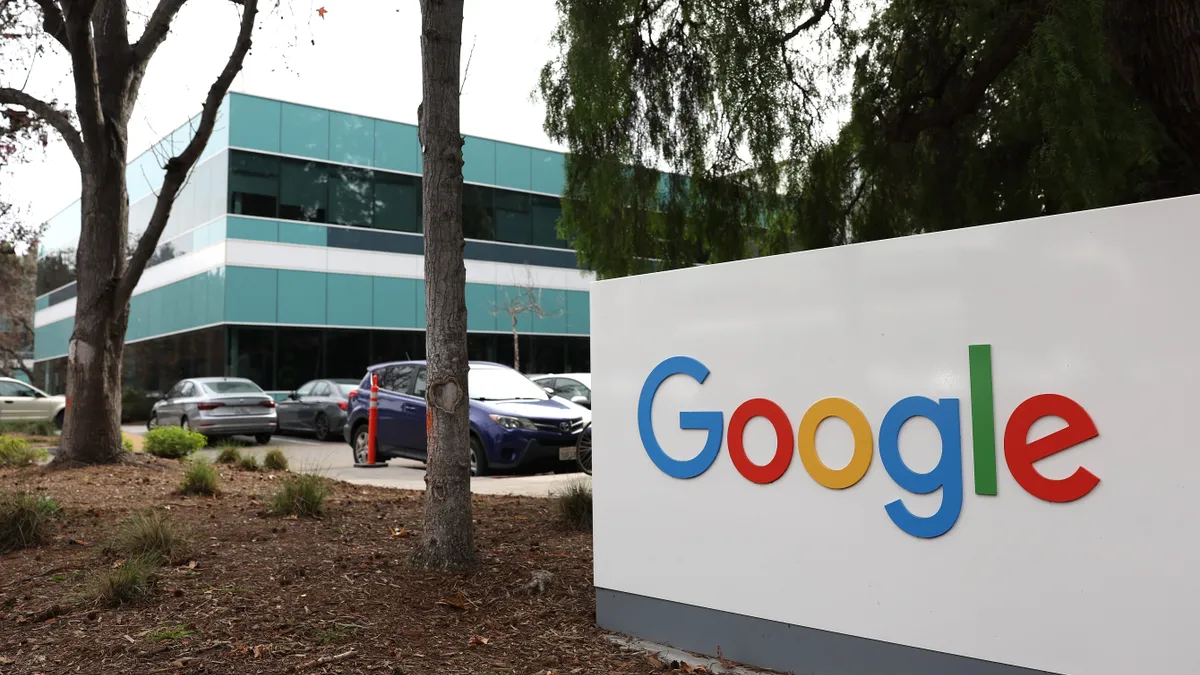Google maintains an illegal monopoly on search, a U.S. federal judge ruled Monday. The highly anticipated decision represents a major blow to the largest player in digital advertising and stands to be a potential watershed moment amid a larger regulatory crackdown on Big Tech.
The ruling could open inroads for search competitors that have long vied for a stronger foothold in a highly trafficked — and lucrative — corner of the web, where Google search engine optimization (SEO) and search engine marketing (SEM) are industries within themselves. At the same time, it may add fresh layers of complexity to an online landscape undergoing rapid transition as laws around data privacy become more stringent.
“We’ve already seen signs of competition heating up the search business; this will embolden challengers to Google’s dominance in that area,” said Andrew Frank, distinguished vice president analyst at Gartner’s marketing practice, in emailed comments. “In addition to diversifying SEO and SEM strategies, organizations may experience even more disruption in digital advertising performance as the flow of data about user interests and behaviors becomes more fragmented and scrutinized.”
The decision by U.S. District Judge Amit Mehta places heavy emphasis on Google’s distribution agreements with other companies, including Apple, to make its search engine the default option on popular web browsers and devices like the iPhone. Such deals have made Google a name synonymous with search and squashed competition, the ruling argues.
Google’s general search services and general text advertising run afoul of Section 2 of the Sherman Act, Mehta stated in the 286-page ruling that sided with the Justice Department. Remedies are still being decided to address Google’s search practices.
“After having carefully considered and weighed the witness testimony and evidence, the court reaches the following conclusion: Google is a monopolist, and it has acted as one to maintain its monopoly,” Mehta wrote.
Google plans to appeal the decision. In its response, the Alphabet-owned company highlighted the perception that its search engine is superior to those of rivals, part of its argument that the platform’s ubiquity has been driven by consumer choice.
“We appreciate the Court’s finding that Google is ‘the industry’s highest quality search engine, which has earned Google the trust of hundreds of millions of daily users’, that Google ‘has long been the best search engine, particularly on mobile devices’, ‘has continued to innovate in search’ and that ‘Apple and Mozilla occasionally assess Google’s search quality relative to its rivals and find Google’s to be superior,” said Kent Walker, Google president of global affairs, in a statement shared over email that quotes portions of the ruling.
“Given this, and that people are increasingly looking for information in more and more ways, we plan to appeal. As this process continues, we will remain focused on making products that people find helpful and easy to use,” Walker continued.
Around 90% of search queries went through Google in 2020, per estimates from the Justice Department, a figure that climbed to 95% on mobile. Those numbers stand in stark contrast to rivals like Microsoft’s Bing, which commanded just 6% of search activity at that time. The disparity has been apparent in relation to advertising revenue as well. Google hauled in $146 billion in ad revenue from search in 2021. Bing generated less than $12 billion the following year.
Google’s search segment grew revenue 14% year over year to $48.51 billion in Q2 2024, according to a recent earnings report from parent Alphabet. Google is in the midst of transforming search to include more generative artificial intelligence features.
The Justice Department and a large group of state attorneys general first filed an antitrust suit against Google’s search business in 2020. The ruling that Google wields a monopoly in the category follows a 10-week trial last year that saw testimony from top brass at Google, Apple and Microsoft, with closing arguments made in May.
The Justice Department is pursuing a separate case around Google’s alleged “stranglehold” over the ad-tech ecosystem. A federal trial on that case is expected to begin in September.
Dual antitrust cases in the U.S. are among the largest threats to Google’s tech supremacy, which has been challenged elsewhere this year. In the EU, the company is under investigation due to a new legislation, the Digital Markets Act, that is intended to keep digital’s most powerful players in check. Apple and Meta are also under investigation.
Sharper regulatory pressures have led Google to recently change course on key initiatives. The firm for years planned to deprecate third-party cookies, a popular ad-targeting method, in its Chrome web browser, and replace them with a solution called the Privacy Sandbox. But the Privacy Sandbox came under mounting scrutiny from both regulators and advertising trade groups, leading Google to abandon its long-in-the-works cookie plans last month.






















